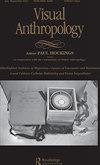Art, Anthropology, and Contested Heritages
IF 0.3
Q3 ANTHROPOLOGY
引用次数: 0
Abstract
This book is an outcome of a three-year research project called TRACES that was funded in 2016 by the European Commission, as part of the Horizon 2020 Research and Innovation Programme. The project set out to investigate challenges and possibilities of transmitting contentious pasts to public audiences and the role cultural contentious heritage plays in contemporary Europe. One of the project’s aims, while transmitting contentious cultural heritage to public(s), was to involve modes of creative co-production (CCP) within research practices. Researchers contributing to the volume propose that, by changing research practices, potentials exist to instigate a process of reflexive Europeanization, whereby the European imagination is shaped by self-awareness, ongoing critical reflection, and dialogs across a multiplicity of methodological positions. This research project brought together a multidisciplinary team of artists, anthropologists, archaeologists, and architects to investigate contentious cultural heritages through collaboration and experimentation. Contentious cultural heritage studies have gained momentum in recent years. A key figure responsible for shaping and influencing these studies is the anthropologist Sharon Macdonald. Her research considers heritage as a relational process whereby memory, multiple identities and history are not fixed in time; but rather past, present, and future become interwoven through shifting social relations and multitemporal practices (Macdonald 2013, 2021). Underpinning TRACES researchers’ inquiry is the concept of CCP. CCP in the TRACES project required a diversity of research partners to work on specific cases of contentious heritage toward providing participatory public interfaces. Theoretical inquiry and artistic practice-based investigations aim to open lines of inquiry for cultural institutions and museums to engage with contentious cultural heritage and find a means to inform future formation of European identities. Research methodologies were deployed analyzing challenges, opportunities, and practices inherent in transmitting difficult pasts and heritages to different audiences. The edited volume is the result of collaborative efforts of many research partners in the TRACES network, which comprises universities, museums, independent research organizations, and NGOs working in various locations across Europe. The volume has 13 chapters presenting research done by CCPs in Romania, Poland, Slovenia, Austria,艺术、人类学和争议遗产
这本书是一个名为TRACES的三年研究项目的成果,该项目于2016年由欧盟委员会资助,是地平线2020研究与创新计划的一部分。该项目旨在调查向公众传播有争议的过去的挑战和可能性,以及有争议的文化遗产在当代欧洲所扮演的角色。该项目的目标之一,在向公众传播有争议的文化遗产的同时,是在研究实践中引入创造性合作生产模式。参与该卷的研究人员提出,通过改变研究实践,存在引发反射性欧洲化进程的潜力,通过自我意识、持续的批判性反思和跨多种方法论立场的对话来塑造欧洲人的想象力。这个研究项目汇集了一个由艺术家、人类学家、考古学家和建筑师组成的多学科团队,通过合作和实验来调查有争议的文化遗产。近年来,有争议的文化遗产研究势头强劲。人类学家莎伦·麦克唐纳是塑造和影响这些研究的关键人物。她的研究将遗产视为一个关系过程,在这个过程中,记忆、多重身份和历史不是固定的;而是通过不断变化的社会关系和多时相实践,过去、现在和未来交织在一起(Macdonald 20132021)。TRACES研究人员的研究基础是CCP的概念。TRACES项目中的CCP需要多种研究合作伙伴对有争议的遗产的具体案例进行研究,以提供参与性的公共界面。理论调查和基于艺术实践的调查旨在为文化机构和博物馆开辟调查渠道,让他们参与有争议的文化遗产,并找到一种方法来为未来欧洲身份的形成提供信息。研究方法分析了向不同受众传播艰难的过去和遗产所固有的挑战、机遇和实践。编辑后的这本书是TRACES网络中许多研究合作伙伴合作的结果,该网络由大学、博物馆、独立研究组织和在欧洲各地工作的非政府组织组成。该卷共有13章,介绍了罗马尼亚、波兰、斯洛文尼亚、奥地利的CCP所做的研究,
本文章由计算机程序翻译,如有差异,请以英文原文为准。
求助全文
约1分钟内获得全文
求助全文
来源期刊

Visual Anthropology
ANTHROPOLOGY-
CiteScore
1.00
自引率
50.00%
发文量
19
期刊介绍:
Visual Anthropology is a scholarly journal presenting original articles, commentary, discussions, film reviews, and book reviews on anthropological and ethnographic topics. The journal focuses on the study of human behavior through visual means. Experts in the field also examine visual symbolic forms from a cultural-historical framework and provide a cross-cultural study of art and artifacts. Visual Anthropology also promotes the study, use, and production of anthropological and ethnographic films, videos, and photographs for research and teaching.
 求助内容:
求助内容: 应助结果提醒方式:
应助结果提醒方式:


